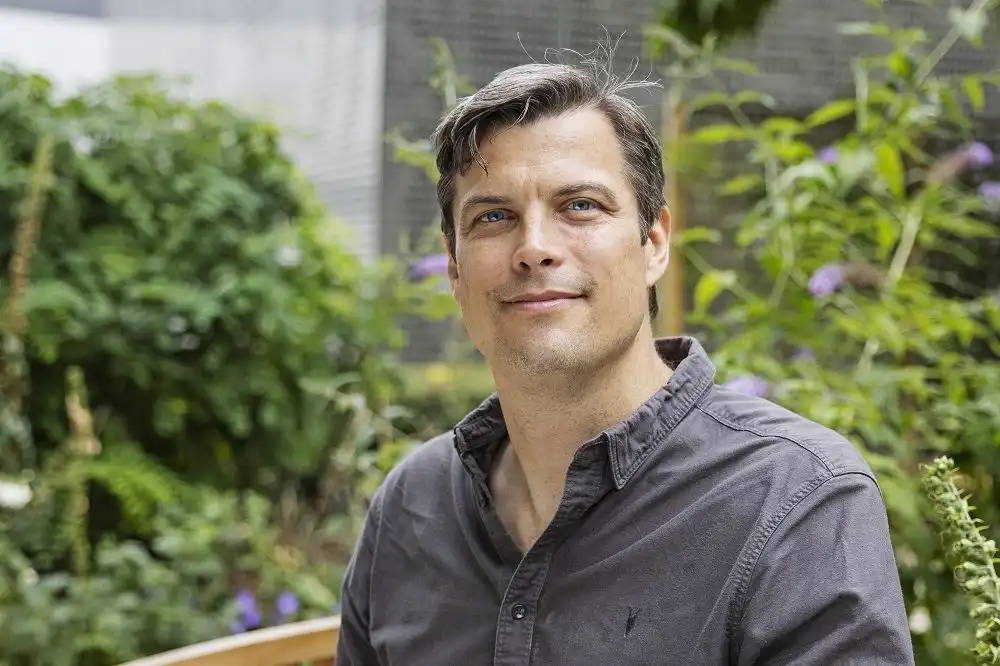Home>Meet Professor Liam Campling, Senior Visiting Fellow at Sciences Po Law School
13.11.2024
Meet Professor Liam Campling, Senior Visiting Fellow at Sciences Po Law School
Liam Campling, Professor of International Business and Development (School of Business and Management, Queen Mary University of London) has joined Sciences Po Law School for a visiting stay (September 2024 to June 2025). He tells us about his background, her experience and first impressions since joining the Law School's Research Centre.
CAN YOU DESCRIBE YOUR PROFESSIONAL BACKGROUND?
I am currently Professor of International Business and Development, School of Business and Management, Queen Mary University of London, where I co-founded the Centre on Labour, Sustainability and Global Production. I am a political economist, which I consider to be an intrinsically interdisciplinary approach to the study of social relations of power under capitalism.
I've spent much of my career over the last twenty years trying to unravel the complex ways in which firms, trade, and the environment shape one another, and to what effects. My recent work highlights the often-overlooked forces driving distributions of value and wealth in our world, from exploring how global value chains interact with natural resources, to unravelling articulations of corporate power and workers’ struggle in South Korea’s auto industry; and from examining the hidden political economy of international fisheries to analysing the policy and practice of labour standards in EU free trade agreements.
Much of my work is collaborative. I’ve enjoyed working with – and learned a lot from – lawyers, economists, and oceanographers and climate scientists. I try to bridge the academic-policy gap through regular applied research, including for FAO, International Transport Workers’ Federation, UNCTAD, and, especially, the Pacific Islands Forum, such as in the Pacific Group’s negotiations at the WTO on the 2022 Agreement on Fisheries Subsidies. In the UK, I work with the Trade Justice Movement, advocating for using trade policy to combat climate change, and creating the world’s first citizens’ assembly on trade and climate.
Along the way, I have learned that the sea plays a pivotal role in capitalist development, and that if we want to understand abstract dynamics in the world economy, we need to drill into concrete relationships involving labour regimes and global production.
YOU ARE SENIOR VISITING FELLOW AT SCIENCES PO LAW SCHOOL, CAN YOU TELL US MORE ABOUT YOUR STAY AND YOUR RESEARCH PROJECTS?
It is great to be here and to start to meet faculty and students – I leave in June 2025. I’ve already done a guest lecture on law and distribution for Helena Alviar’s brilliant students. I am scheduled to run a methods class for doctoral students on ‘doing political economy in the field’, and to present my work at a Law School seminar, which will be on a draft paper on the contradictions and possibilities of using trade policy to mitigate biodiversity and climate crises.
I also have visiting positions with the University of London Institute in Paris and with Cresppa, CNRS-Université Paris 8, where I will be doing seminars on 5 December on China’s industrial strategy of distant water fishing and in January on ecology and labour regime analysis.
WHAT ARE YOUR PLANS FOR THE FUTURE?
Going forward, I plan to continue to work on labour regimes and environmental change. I see this as a vital area for research because we have only a very limited understanding of the ways in which the labour process and work – whether formal or informal – will change under conditions of unfolding biodiversity and climate crises. Struggles bridging work, law, social reproduction and ecology are likely to grow in significance, including over food, energy and transport, and we need better analytical tools to think about these relationships in-motion.
More information:
